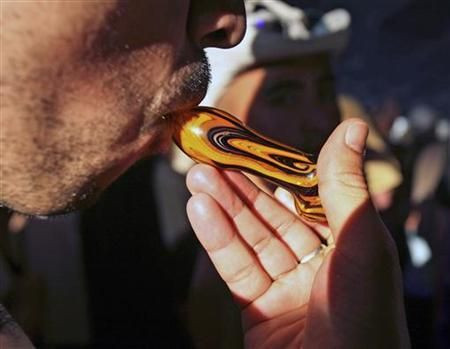Frequent Cocaine And Marijuana Use Could Lead To Impulsive Behaviors, Addiction

Illicit drug use among high school students continues to rise and its physical and psychological effects are leading to more health concerns among America’s youth. A new study published in the British Journal of Pharmacology revealed that regular cocaine and marijuana use could lead to other impulsive behaviors and even addiction.
“If a person’s tendency to be impulsive increases, they tend to make snap decisions and the error rate increases,” said lead researcher Janelle van Wel from Maastricht University.
Sixty-one marijuana and cocaine users were recruited to take both drugs as well as a placebo. Prof. van Wel and her colleagues asked individuals participating in the study to think about their actions before they completed a series of tests designed to assess critical thinking, division of attention, executive function, and planning.
Results indicated that marijuana users exhibit slow decision-making skills and tend to make more mistakes. On the other hand, cocaine users were able to react in a timelier manner, but were less likely to control their impulses, which led to more mistakes. Regular marijuana and cocaine users were more likely to be impulsive under the influence of either drug compared to the placebo.
“This increased impulsivity after drug use could increase the likelihood of developing addiction,” van Wel added. “These findings contrast with previous reports that had claimed that these effects after cannabis administration only occurred in occasional users and not in heavy users.”
According to a recent survey conducted by the Centers for Disease Control and Prevention, 23 percent of high school students admitted to smoking marijuana in the past 30 days while 18 percent admitted to smoking a cigarette. Regular use of marijuana among Americans 12 and older was reported at 5.8 percent in 2007 compared to 7.3 percent in 2012.
Researchers were also interested in marijuana and cocaine’s effect on the brain’s frontal cortex and limbic system. The frontal cortex controls decision making while the limbic system deals with emotional response and memory. Marijuana use could decrease the frontal cortex’s control of our behavior, and cocaine could increase the limbic system’s impulse response.
“Both of these options would cause the decrease in impulse control we see in our study,” explained van Wel. Further research that utilizes brain imaging techniques is essential to proving the research team’s hypothesis.
Source: Van Wel J. Single Doses of THC and cocaine decrease proficiency of impulse control in heavy cannabis users. British Journal of Pharmacology. 2013.



























